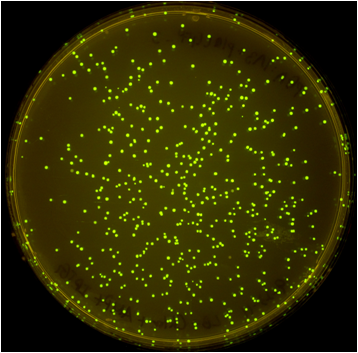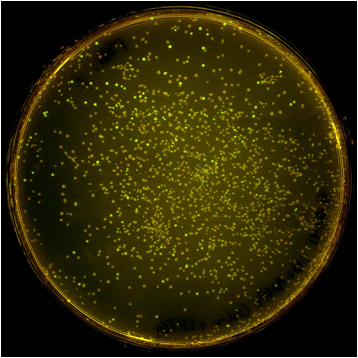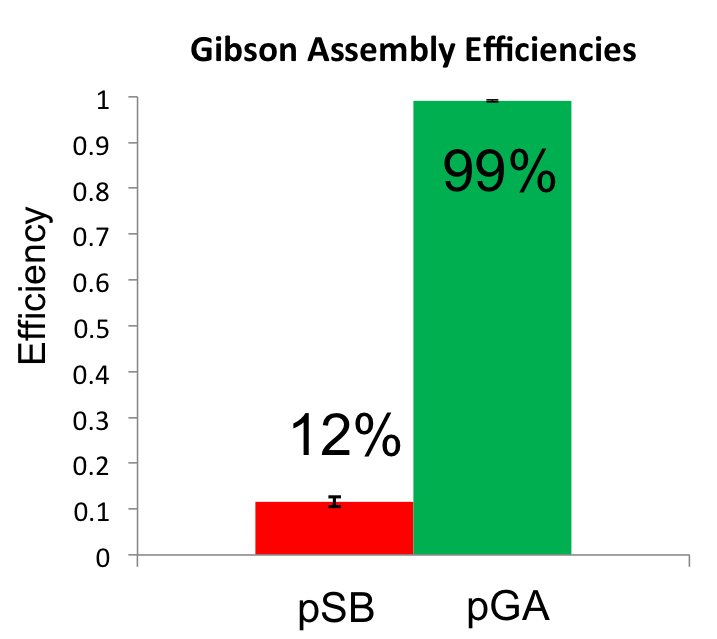Team:Washington/Magnetosomes/GibsonResults
From 2011.igem.org
Comparison between pGA and pSB vectors
To quantitatively illustrate that higher cloning efficiency is achieved with pGA vectors than with standard pSB vectors, we conducted a comparative Gibson assembly assay. For the pGA vector assay, we used a [http://partsregistry.org/wiki/index.php?title=Part:BBa_K173025 pLac-GFP] insert from pGA1C3 with a pGA1A3 backbone. Both of these had already been previously gel extracted, therefore, we proceed straight to the Gibson Reaction. For the pSB vectors, we started with the same pLacGFP insert from a pSB3K3 with a pSB1A3 Backbone. Both the insert and backbone were amplified using PCR (20 ng/uL of DNA), and gel extracted. From this point, we preformed our Gibson Assay.
The Gibson products made using our pGA vectors and the standard pSB vectors were plated separately over 6 plates, and the Gibson efficiency was calculated for each plate. We calculated the efficiency by dividing the # of bright colonies by the # of total colonies - # of background colonies. <math>E_G = \frac{C_B}{C_B+C_D - C_K}</math>
Once the Gibson efficiences were calculated for each set of plates, the average Gibson efficiency was calculated. The average Gibson efficiency of using our pGA vectors was 0.991129032. This value is significantly higher than that of the pSB vectors (efficiency = 0.116395664). Visually, one can see that there are more fluorescent colonies on the pGA plate vs the pSB plate.
Based on the comparison presented, we can be certain that our Gibson Assembly vectors (pGA vectors) are a great choice for gene assemblies!
 "
"





